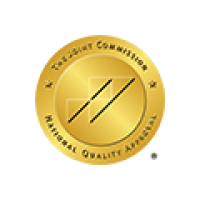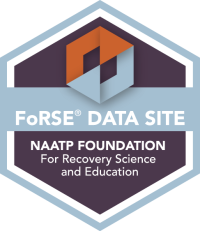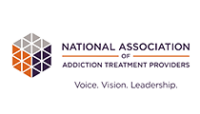Drug and Alcohol Treatment in New Jersey
Mental Health Program
Individual Therapy
Weekly one-on-one sessions with a licensed therapist
Intensive Structure
Structured treatment programs during the day, providing a supportive environment similar to inpatient care but allowing individuals more flexibility in the evenings.
Holistic Approach
Holistic therapies such as yoga, mindfulness meditation, art therapy, and recreational activities to promote overall well-being and address the mind-body connection.

Group Therapy
Tailored to address addiction and underlying mental health issues.
Medical Supervision
Staffed with medical professionals who monitor individuals' health and manage medications to address withdrawal symptoms or co-occurring medical conditions.
Transition Support
Assist individuals in transitioning to lower levels of care or outpatient treatment, providing aftercare planning and ongoing support to maintain sobriety and prevent relapse.
What Is A Mental Health Program?
An Overview of Mental Health Program
Seacrest Recovery Center brings caring, compassionate treatment programs for adults, living with a mental illness. Our facilities situated throughout the State of New Jersey give people the opening to take sound choices, steady signs of sickness and eventually arrive at his or her total ability.
Having top-notch emotional wellbeing is indispensable to your wellbeing, prosperity, and general wellness. Nonetheless, emotional well-being concerns and issues, for example, pressure, sorrow, and physical mistreatment can make you feel strange now and again meddling with regular day to day existence.
Seacrest Recovery Center offers outpatient emotional wellness administrations for those in need of mental health improvements. Our outpatient program offers an expansive way to deal with psychological illness that can be personalized for yourself or a cherished one who needs treatment.
New Jersey Outpatient Mental Health Programs
When disregarded, emotional wellbeing difficulties may result in deteriorated bodily and mental health, and can interfere with your occupation and most cherished life objectives, including those related to home life, relationships, job, and schooling.
Patients who partake in outpatient emotional wellness treatment at Seacrest Recovery look in on us from one to three days per week. Outpatient treatment is not the same as customary outpatient care as it uses an extremely arranged treatment approach and offers greater opportunity and adaptability than private residential care.
About Outpatient Mental Health Programs at Seacrest Recovery Center
Individuals who get mental health therapy on an outpatient basis from Seacrest come to us from one to three days each week. Outpatient treatment is distinctive from normal outpatient attention since it uses a thoroughly planned treatment technique and provides more liberty and elasticity than residential inpatient care.
Therapies and services offered as part of our outpatient program include:
- Psychiatric evaluation and assessment
- Individual and group therapy
- Family therapy
- Couples therapy
- Medication management
- Substance abuse counseling
- Co-occurring therapy
In addition to treating mental health disorders like anxiety and depression, our mental health program can help you manage and overcome:
- Stress
- Marital and relationship problems
- Strained family relationships and family issues
- Domestic violence
- Physical and sexual abuse
- LGBTQ issues
- Sexuality issues
- Parenting concerns
- AIDS counseling
- Life transitions, such as retirement or divorce
- Chronic illnesses
- Eating disorders
- Behavioral disorders
- Substance use disorders
- Loss and bereavement
Outpatient Counseling Services
Outpatient amenities such as individual and group therapy, intensive therapies and drug dependence plans aid persons and families modify life to settle disputes, master issues better and realize their ambitions. These services are accessible in convenient locations throughout all of Southeast Florida.
How Mental Health Treatment Works at Seacrest Recovery Center
Call Us Today
You can perform an initial assessment by phone 24 hours a day, 7 days a week. Your assessment appointment will take place over the phone and generally only takes about 10-15 minutes.
Perform Full Assessment
Our assessment team will evaluate your unique situation including symptoms, past behaviors and experiences. Our medical team will review this information and determine a comprehensive treatment plan for you.
Treatment Plan
Our team will work with you to develop a customized treatment plan that’s right for you. In addition to group therapy and individual therapy, you will work closely with a psychiatrist and other clinical professionals throughout your entire treatment.
- Individual Counseling
- Group Therapy
- Medical Supervision
- Skill Building
- Holistic Approach
- Transition Support
Most Major Health Insurance Accepted
We work with most major health insurance carriers. Often times insurance can cover up to 100% of your treatment costs. Contact us today to get started. Verification of benefits can be done right away. Don’t worry if you don’t see your health insurance listed here. We can help with many different plans.
- BCBS
- Aetna
- Anthem
- Tricare
Today Is The Day
You Never Have To Feel This Way Ever Again
One simple call to our caring and compassionate staff, and you can be on your way to a lifetime of freedom and recovery

As Seen On Hulu
Seacrest Recovery Center is The Featured Drug & Alcohol Rehab on Jelly Roll's Save Me Documentary on Hulu Originals
Trusted Treatment Provider
Certified and Accredited Both Locally and Nationwide




Our Clients Believe In Us
And We Believe In Them!
Here Is What They Are Saying
About Seacrest Recovery
Your First Step To Recovery
Our Locations

Columbus OH

Eatontown NJ

Willard OH

Cincinnati OH
More About A Mental Health Program
Mental Health Program
A mental health treatment program is a comprehensive approach to addressing various mental health conditions through a range of therapeutic interventions and support services. These programs are designed to provide a structured environment that helps individuals manage their mental health and work towards recovery.
Key Components of Mental Health Treatment Programs:
Supervision and Support:
– Continuous care and monitoring by medical and mental health professionals.
– Access to immediate assistance for any medical or psychological issues.
Individualized Treatment Plans:
– Personalized care tailored to the specific needs of each patient.
– Comprehensive assessments to determine the most effective treatment strategies.
Therapeutic Interventions:
– Various forms of therapy, including individual, group, and family therapy.
– Cognitive-behavioral therapy (CBT), dialectical behavior therapy (DBT), and other evidence-based practices.
– Holistic approaches such as art therapy, music therapy, and mindfulness practices.
Medication Management:
– Evaluation and management of psychiatric medications.
– Regular monitoring and adjustments as needed to ensure efficacy and minimize side effects.
Life Skills Training:
– Education on coping mechanisms and stress management techniques.
– Training in skills necessary for independent living, such as self-care, job readiness, and social skills.
Supportive Community:
– Peer support from individuals experiencing similar challenges.
– Building a network of supportive relationships within the program.
Aftercare Planning:
– Development of a comprehensive aftercare plan to support ongoing recovery post-treatment.
– Referrals to outpatient programs, support groups, and other resources.
Benefits of Mental Health Treatment Programs:
Intensive Care: Provides a high level of care and support, which is often necessary for those with severe mental health disorders.
Structured Environment: Removes individuals from environments that may contribute to their mental health issues.
Holistic Approach: Addresses not only the mental health disorder but also any co-occurring substance use disorders or other underlying issues.
Community and Peer Support: Creates a sense of community and shared experience, reducing feelings of isolation.
Ideal Candidates for Mental Health Treatment Programs:
– Individuals with severe mental health disorders.
– Those who have not been successful in outpatient treatment programs.
– Individuals with co-occurring substance use disorders.
– Those who need a highly structured and supportive environment to achieve and maintain mental wellness.
Mental health treatment programs are a vital part of the continuum of care, providing the necessary support and resources for individuals to achieve lasting mental wellness.
- Individual Counseling
- Group Therapy
- Medical Supervision
- Skill Building
- Holistic Approach
- Transition Support
Most Major Health Insurance Accepted
We work with most major health insurance carriers. Often times insurance can cover up to 100% of your treatment costs. Contact us today to get started. Verification of benefits can be done right away. Don’t worry if you don’t see your health insurance listed here. We can help with many different plans.
- BCBS
- Aetna
- Anthem
- Tricare
